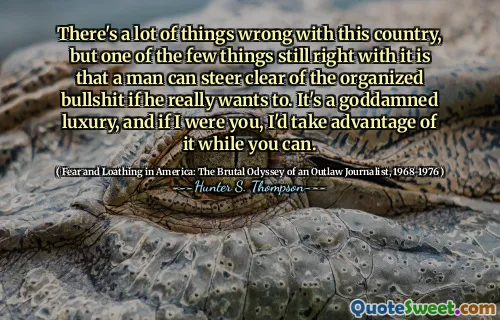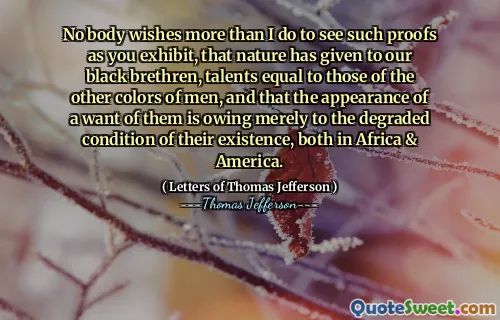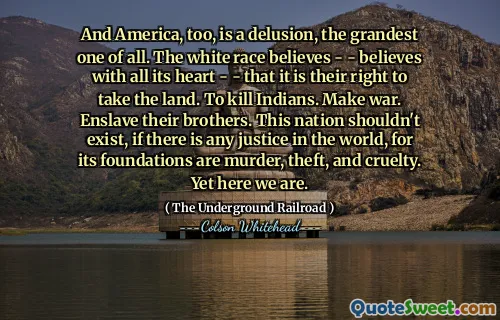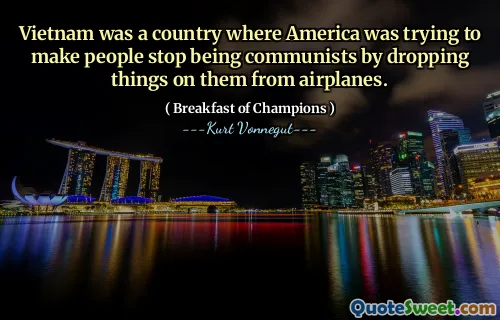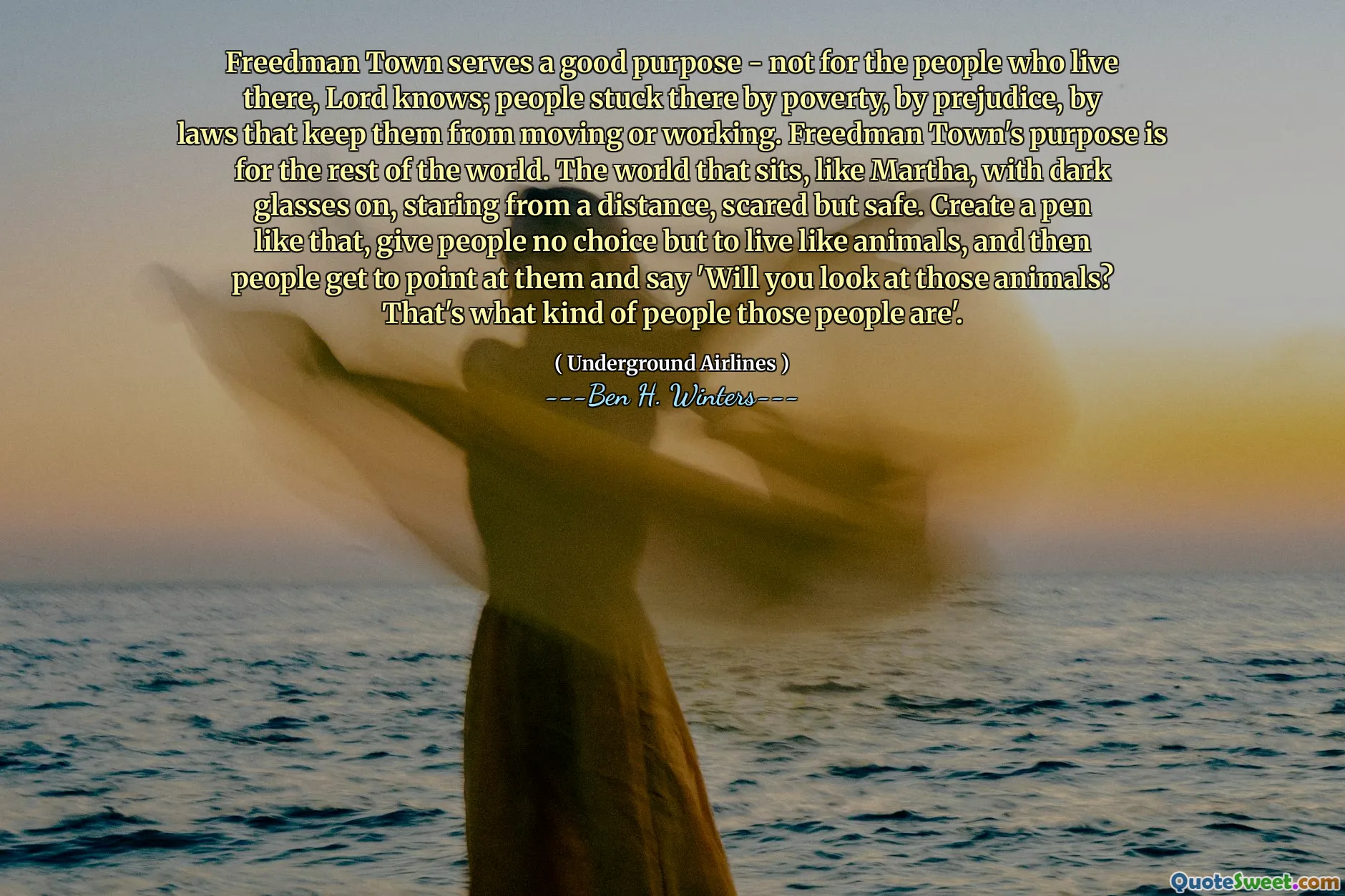
Freedman Town serves a good purpose - not for the people who live there, Lord knows; people stuck there by poverty, by prejudice, by laws that keep them from moving or working. Freedman Town's purpose is for the rest of the world. The world that sits, like Martha, with dark glasses on, staring from a distance, scared but safe. Create a pen like that, give people no choice but to live like animals, and then people get to point at them and say 'Will you look at those animals? That's what kind of people those people are'.
This quote offers a profound critique of societal segregation and the dehumanization often associated with systemic inequality. It unveils how marginalized communities, like Freedman Town, are often relegated to specific spaces that serve the voyeuristic or justificatory purposes of the dominant society. These spaces are not designed with the community’s well-being in mind; instead, they function as spectacles for others to observe, judge, and distance themselves from the realities of poverty, prejudice, and oppressive laws. The comparison to a penned-in area where animals are kept forces the reader to consider the inhumane treatment and the devaluation of these communities. The metaphor suggests that such segregation is not accidental but a deliberate creation by societal structures wanting to insulate the rest of the population from the uncomfortable truths of inequality. It evokes a sense of moral discomfort—highlighting how society constructively embellishes stereotypes, reinforcing divisions rather than addressing the root causes of hardship faced by residents. The quote also touches on the passivity or complicity of those who observe from a distance, implying that their spectacle is a form of control or suppression, allowing the majority to feel safe while others remain imprisoned in a cycle of hardship. Such reflections are especially relevant today as debates around urban segregation, systemic racism, and social justice continue to dominate conversations. Recognizing these spaces as created for the testing and reinforcement of societal privilege prompts critical reflection on how genuine change can be achieved when societal attitudes and structures are challenged and dismantled. Ultimately, the quote challenges us to confront uncomfortable truths and to see beyond the spectacle, fostering empathy and advocacy for true equality and human dignity. —Book: '(Underground Airlines)' - Author: 'Ben H. Winters'

